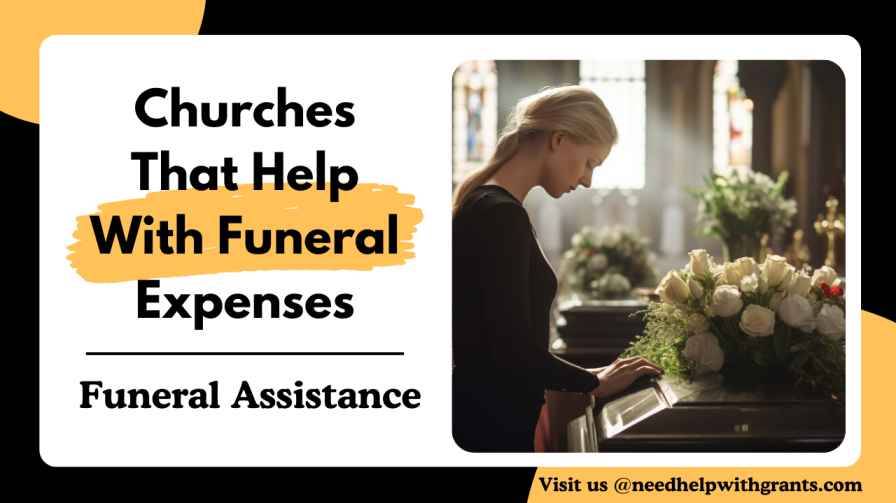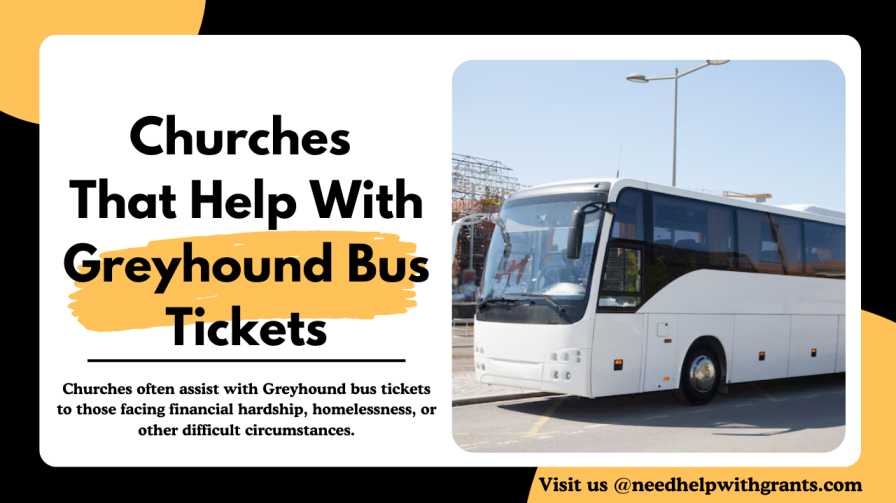Funerals are an inevitable part of life, but rising costs often catch families off guard. As a pillar of support in various communities, Churches provide much-needed assistance to ensure that no family faces these hardships alone.
This guide delves into the compassionate efforts of churches. That helps with funeral expenses. Providing insight, resources, and hope for families in need.
Funerals cost an average of $7,000–12,000 in the United States. This financial burden can greatly impact grieving families and overwhelm them in moments of emotion. Inflation rates, service fees, and funeral expenses cause more of this problem. This makes financial assistance necessary for many.
Types of Funeral Assistance Offered by Churches
Churches often offer various types of funeral assistance to support grieving families during difficult times. These services may vary depending on the church’s denomination, size, and available resources, but generally include the following:
☑️Spiritual Support
The church provides spiritual guidance and comfort to families through clerical services such as funerals and prayers. They also support bereaved families with grief counseling and prayer groups to help them navigate their loss with faith and hope.
☑️Funeral Service Organization
Churches help families plan funerals and choose elements such as hymns. They often provide their sanctuary or chapel for the ceremony and provide musicians or a choir to promote it.
☑️Financial Assistance
Many churches offer financial help to families who are struggling to afford funeral costs. This may include subsidizing fees for the service or contributing to burial and cremation expenses through benevolence funds.
☑️Logistical Support
Churches coordinate with funeral homes to ensure that all arrangements run smoothly. They may host a post-service reception and help arrange transportation for family members or guests.
☑️Memorial and Commemorative Services
Churches may hold follow-up memorial services for families unable to organize a traditional funeral. They often offer annual remembrance events or special days to honor the deceased.
☑️Community Support
Church members often rally around grieving families by preparing meals, helping with household tasks, or volunteering during the service. Many churches also organize grief support groups to provide long-term emotional support.
☑️Cultural or Religious Rites
Churches perform specific religious or cultural rituals, such as last rites or blessings, tailored to their traditions. They may also offer graveside services or blessings at burial sites to honor the deceased’s faith and customs.
How to Locate Churches That Help With Funeral Expenses?
Locating churches that help with funeral expenses involves a combination of research, outreach, and leveraging community resources. Here are some steps to find assistance:
✔️Contact Local Churches
- Start with a church in your area that you or your family is involved with, even though they do not provide direct financial assistance. But they may offer you other forms of support or refer you to resources.
- Ask if they have a charitable fund or specific program to help with funeral expenses.
✔️Search Online
- Use search engines to look for churches in your area that offer financial aid for funerals. Include terms like “funeral assistance,” “benevolence fund,” or “help with burial costs.”
- Check church directories or websites that list community resources, such as local dioceses, associations, or denominational organizations.
✔️Contact Faith-Based Organizations
- Larger faith-based organizations often provide funeral assistance. For example, Catholic Charities, the Salvation Army, and other religious groups may offer grants or financial help.
- Check their websites or contact their local branches for information.
✔️Seek Recommendations
- Ask friends, family, or community members if they know of any churches that assist with funeral expenses.
- Funeral homes and social workers often have connections with local churches and can provide recommendations.
✔️Check Social Media and Community Boards
- Look for local community groups on platforms like Facebook or neighborhood forums. Many communities share resources and can point you toward churches that offer help.
- Check bulletin boards in libraries, community centers, or other public spaces for announcements.
✔️Call 2-1-1 or Other Helplines
- Dial 2-1-1 (United Way’s helpline) to speak with an operator who can connect you with churches and other organizations providing funeral assistance.
- Other helplines or local charities may also have directories of resources.
✔️Visit Church Offices in Person
- If possible, visit the church offices directly to inquire about assistance. Personal contact can sometimes yield faster results than email or phone calls.
By reaching out to the right contacts and leveraging local resources, you can find churches willing to help ease the financial burden of funeral expenses.
List of Top Churches That Help With Funeral Expenses
Many churches provide financial assistance or support to families facing funeral expenses, especially for those in financial need.
Here are some examples:
Catholic Charities
Catholic Charities often assist with funeral expenses through financial aid, reduced-cost arrangements, and collaboration with funeral homes. Their support varies by diocese but may include covering caskets, burial plots, or cremation fees. They also connect families to grief support services.
Episcopal Churches
Many Episcopal churches have outreach programs that offer partial or full assistance for funeral costs. They also help with arrangements and provide community support, such as hosting memorial services or receptions.
Local Church Benevolence Funds
Many individual churches maintain benevolence funds aimed at supporting low-income families during emergencies, including funeral expenses. Eligibility and assistance levels depend on the church’s policies.
Salvation Army
The Salvation Army offers funeral assistance programs in some locations. They may help cover basic expenses and offer pastoral support to families in need.
United Methodist Churches
These churches sometimes provide aid through their missions or community outreach initiatives, helping families manage funeral costs or find affordable services.
Interfaith and Non-Denominational Organizations
Groups such as the Funeral Consumer Alliance often work with local churches to coordinate low-cost funeral options. and providing resources for families.
If you are looking for help, then please contact your local church directly, or contact organizations such as Catholic Charities or the Salvation Army.
- Also read: Charities that Help with Funeral Costs
Online directories and community social media groups can also help locate local programs. Remember that eligibility requirements and funding availability can vary significantly across locations and institutions.
Who Are Eligible to Get Funeral Assistance Programs?
Eligibility criteria for funeral assistance programs generally include:
✔️Financial Need: Priority is given to low-income families or those facing financial hardship, with proof of income.
✔️Residency: Many programs require applicants to reside in a specific area or belong to a local church.
✔️Membership: Some churches or religious groups limit help to active members.
✔️Relationship to the Deceased: Assistance is usually for immediate family or those responsible for funeral arrangements.
✔️Type of Death: Certain programs cater to specific situations, such as deaths caused by disasters or veterans’ deaths.
✔️Other Resources: Applicants may need to show they lack alternative support, like life insurance or prepaid funeral plans.
✔️Special Programs: Veterans, infants, or crime victims may qualify for specialized aid.
Required documents often include the death certificate, proof of financial hardship, and funeral invoices. Contact specific organizations for detailed criteria.
How to Apply for Free Cremation for Low-income?
Applying for free or low-cost cremation services for low-income individuals typically involves several steps.
Here’s a guide to help you navigate the process:
Contact Local Government Assistance Programs
Many counties and states offer burial or cremation programs for low-income individuals. Contact your local social services or health department to learn about eligibility requirements and available aid. Medicaid may also provide cremation assistance in some states.
Reach Out to Funeral Homes
Funeral homes often offer reduced-cost or free cremation services through community programs or partnerships with charities. Ask about “direct cremation” options or specific financial assistance plans to minimize costs.
Apply for Veteran or Social Security Benefits
Veterans Affairs (VA) provides cremation and burial benefits to eligible veterans. Including burial in the national cemetery. Social Security provides a one-time death benefit to eligible survivors. This can offset the cost of cremation.
Ask for Direct Cremation Services
Direct cremation is the most affordable option, covering basic services without additional ceremonies. Many funeral homes provide these services at significantly reduced rates, making it a practical choice for families on a budget.
Provide Required Documentation
Most programs require evidence of financial hardship including income verification, death certificates, or documents such as Medicaid or veteran eligibility. Gather these documents in advance to streamline the application process.
Use Crowdfunding or Community Support
If free services are unavailable, crowdfunding platforms like GoFundMe can help raise funds for cremation costs. Local communities and friends often rally to support families in need, easing the financial burden.
Find Out Other Funeral Assistance Options
In addition to churches, many organizations provide burial assistance to low-income families who do not have health insurance. Nonprofit organizations, such as the Funeral Consumers Alliance, partner with local churches and other entities to provide education, support, and financial assistance to those facing end-of-life expenses.
Government programs may also be an option. For example, the Federal Emergency Management Agency (FEMA) offers financial assistance to cover funeral expenses in certain circumstances. Crowdfunding has also become an increasingly popular way to raise money for funeral expenses.
Platforms such as GoFundMe allow people to share their stories and ask for donations to cover burial costs. Many churches and religious organizations also use these platforms to raise money for their members in need. A well-crafted petition can resonate with many people and inspire them to contribute toward funeral costs.
- Also read: WIC Free Car Seat Program
Conclusion
Churches that help with funeral expenses embody the essence of community care and compassion. Their support alleviates not just financial burdens but also emotional and spiritual struggles, making a significant difference in the lives of grieving families.
FAQs
What happens when you can’t afford a funeral?
If you can’t afford a funeral, there are several options available for you including government aid, low-cost cremation, or burial programs, churches and charities programs, etc. Some states offer indigent burial services, while crowdfunding platforms can help raise funds. Direct cremation, the most affordable option, ensures a dignified farewell without excessive costs.
How much does social security pay for funeral expenses?
Social Security does not pay for funeral or cremation costs in full, but additional assistance can be a big help for direct cremation. Cremation service providers like Cremation Specialists can reduce your costs and the savings are passed on to families.
What is the cheapest burial option?
Direct cremation is the most cost-effective way to bury your loved ones. It is done respectfully and gives you and your family the time to find the most personal and affordable burial option.
Are there any financial assistance programs available for low-income families needing funeral services?
Yes, financial assistance programs for low-income families include government-funded indigent burial services, which cover basic funeral costs. Churches, charities, and nonprofit organizations also offer support. Some states provide funeral assistance programs, and crowdfunding platforms can help raise funds for families facing financial hardship during a difficult time.



